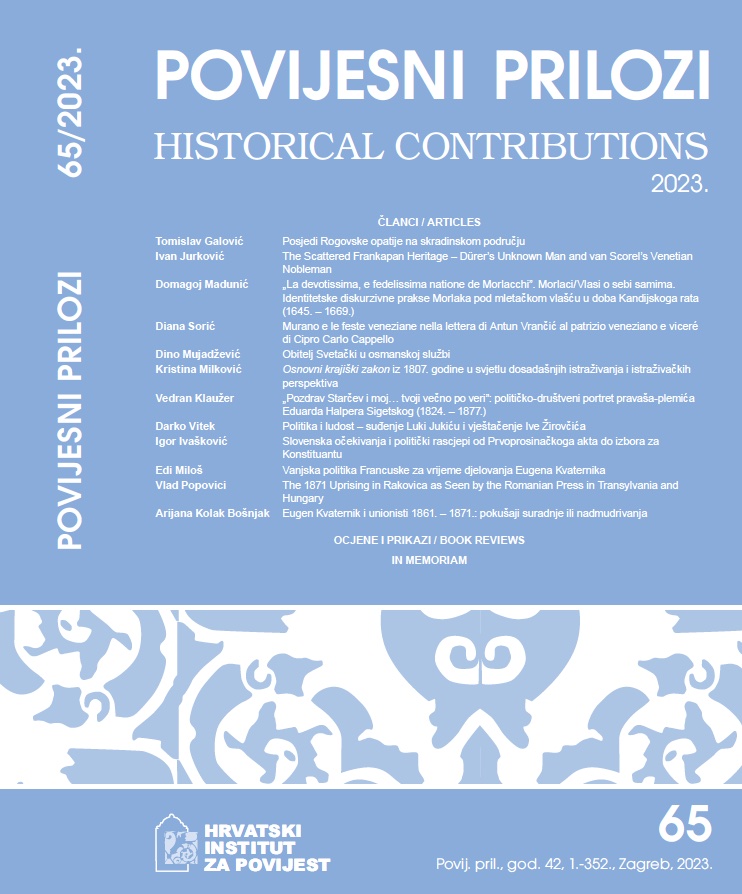Politics and Madness – the Trial of Luka Jukić and the Forensic Evaluations of Ivo Žirovčić
DOI:
https://doi.org/10.22586/pp.v42i65.28596Keywords:
history, psychiatry, Luka Jukić, Ivo ŽirovčićAbstract
The development of psychiatry, traceable in Western European countries during the first half of the 19th century, took on significant contours in Croatia with the establishment of the Institute for the Mentally Ill in Stenjevec. A pivotal figure in the early development of psychiatry was Ivo Žirovčić, the director of the mentioned institution, who managed it for an impressive 21 years. Ivo Žirovčić also played a crucial role in the emergence of forensic psychiatry, which, through his forensic evaluations, began to be recognized as a distinct discipline.
Unrelated to the psychiatric development processes, the period at the end of the 19th and the first decades of the 20th century in Croatia was marked by an unstable political situation culminating in the assassination attempt on the royal commissioner Slavko Cuvaj in 1912. This assassination attempt intertwined psychiatry through the forensic evaluations of Ivo Žirovčić with various political interests and goals. The trial of the young assailant, Luka Jukić, and his accomplices took place in a politically charged atmosphere, where there was public pressure to declare Luka Jukić mentally ill and to send him for treatment at the mental institution. Simultaneously, the state regime demanded severe punishment for the assailant. In such circumstances, psychiatric evaluations were interpreted through political interests, significantly impacting both the public and professional medical circles.
Downloads
Published
How to Cite
Issue
Section
License
Copyright (c) 2023 Authors and journal

This work is licensed under a Creative Commons Attribution-NonCommercial 4.0 International License.







